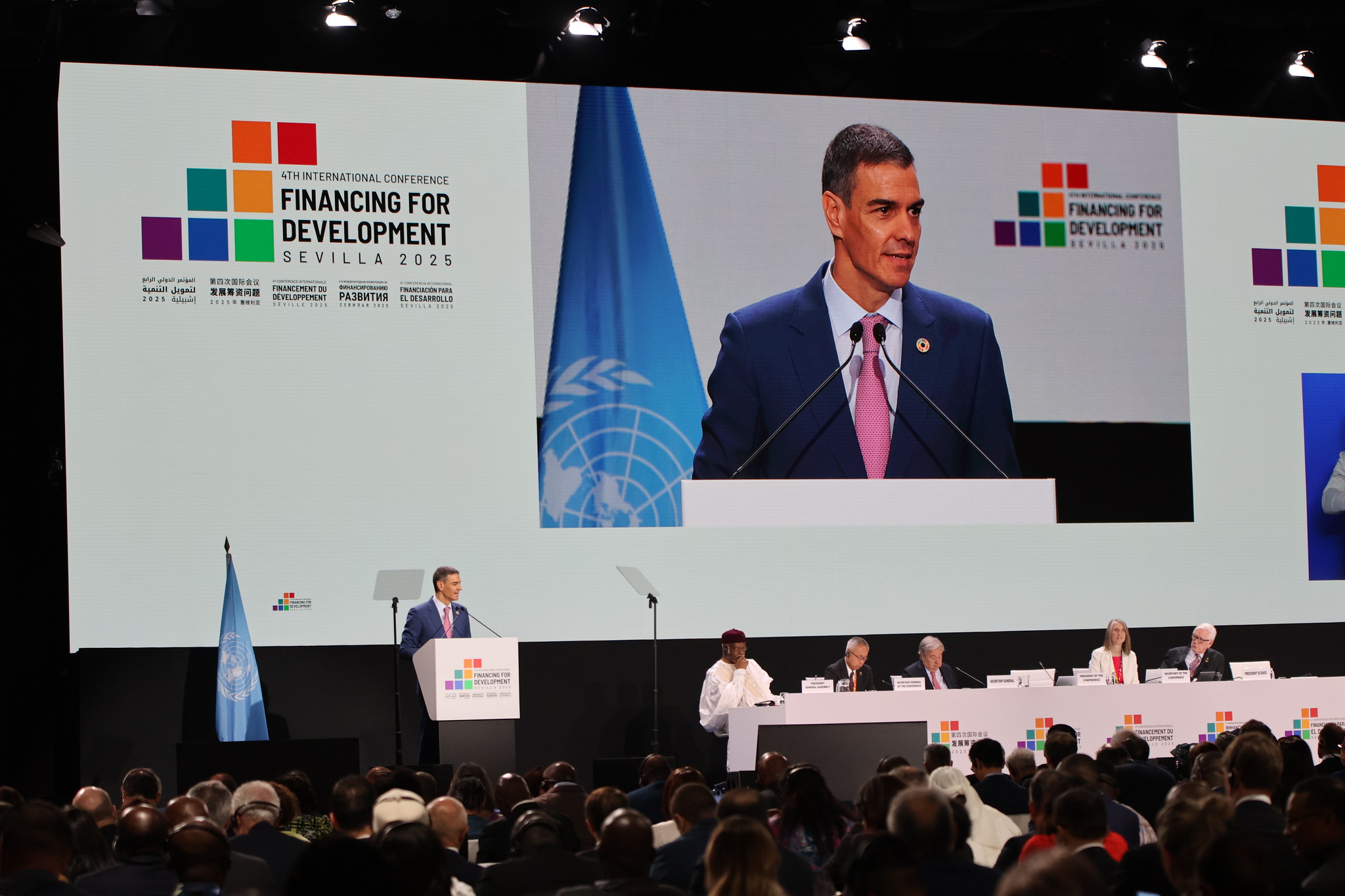 Photo: UN DESA/Helen Rosengren
Photo: UN DESA/Helen Rosengren
FfD4 is a building block for change. While it falls short of the transformative vision many advocates had hoped for, it offers several important entry points for change. The Compromiso de Sevilla signals a shift toward a more equitable financing system and provides a foundation for rights-based financing, focusing on progressive tax systems, debt reform, and gender-responsive policies – all key steps toward building human rights economies.
By Nina Opacic, CESR Fellow and Mahinour ElBadrawi, Global Partnerships Lead
Momentum is building for a new economic architecture, and the Compromiso de Sevilla is one sign of that change. Adopted at the Fourth International Conference on Financing for Development (FfD4), this outcome document reflects both the growing determination of Global South countries to transform the global financial system and the persistent fault lines that threaten progress. Despite walkouts and dissociations from powerful Northern states on issues like debt sovereignty and taxation, the consensus adoption marks a shift toward multilateralism grounded in equity and rights. CESR, alongside the Civil Society FfD Mechanism and other partners, has long advocated for this shift (see our PrepCom4 highlights), demanding a system that puts the rights of people and the planet before the interests of creditors and corporations. At FfD4, CESR and allies advanced this agenda through our side event on Rights-Based Development Finance: A Post-Seville Agenda and by sharing our broader vision for a Human Rights Economy, one rooted in dignity, justice, and sustainability. See video highlights for side event, courtesy of Tax Justice Network, here .
While the Compromiso does not deliver all that civil society advocates and feminist movements have demanded, it does offer significant entry points to continue the work of advancing a rights-based approach to financing for development, sovereign debt and international taxation. As CESR’s Executive Director Dr. Maria Ron Balsera noted:
“Though limited, the outcome lays important groundwork for reclaiming multilateralism – rooted in human rights, debt justice, progressive taxation, fairer use of SDRs, and gender equality. If we treat this not as a conclusion but as a foundation, then perhaps Sevilla can be remembered not for what it failed to deliver – but for what it dared to start.”
To understand how we got to this point and the advocacy that helped shape it, see our previous blog post tracing the lead-up to Seville and cautious consensus. What follows is an overview of the key outcomes of FfD4, including emerging opportunities for systemic reform in sovereign debt, global taxation, gender equality, and climate finance, as well as the political tensions and power dynamics that continue to shape this agenda.